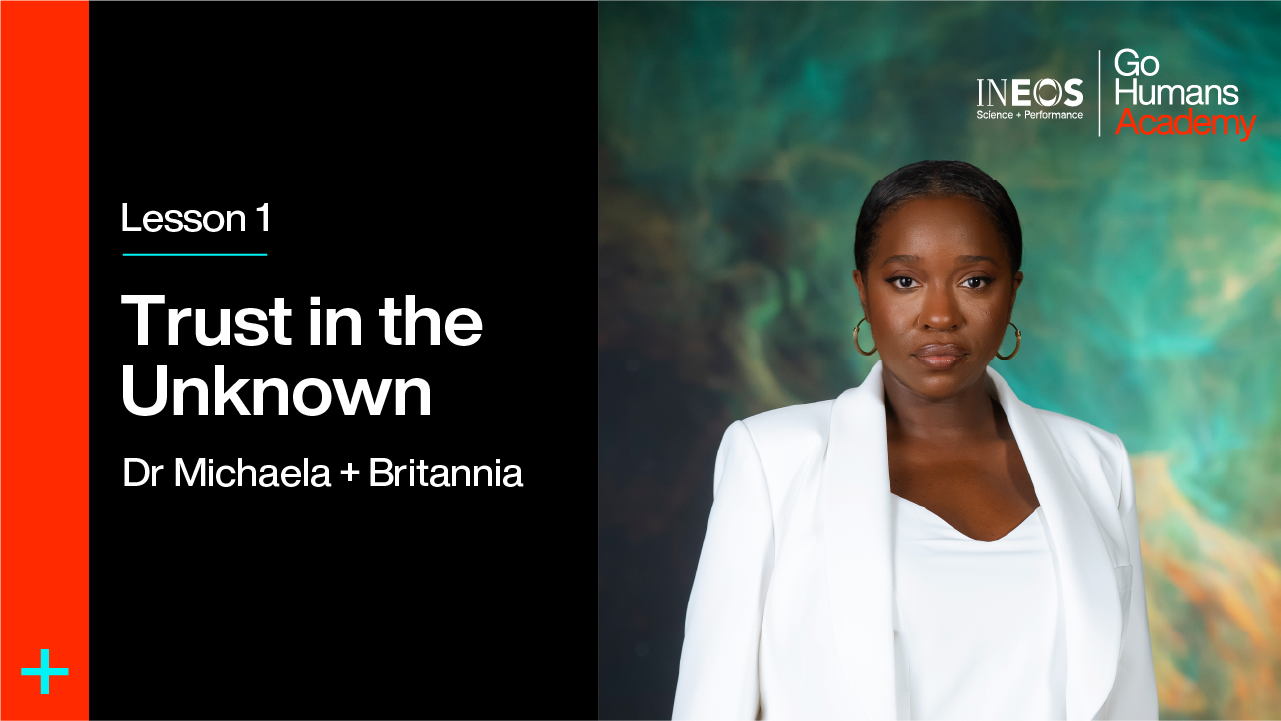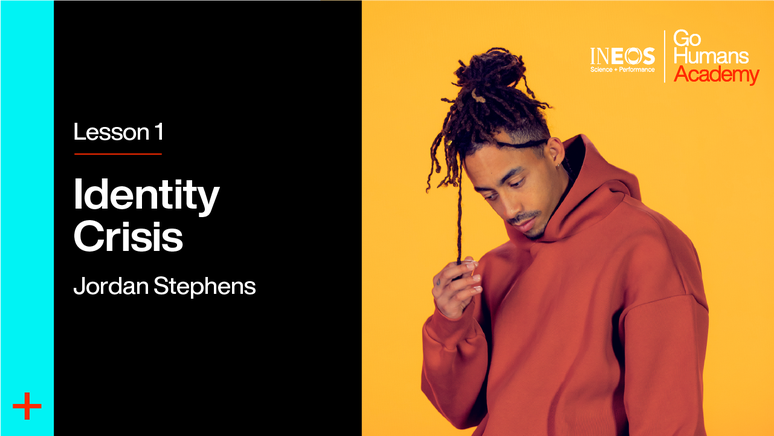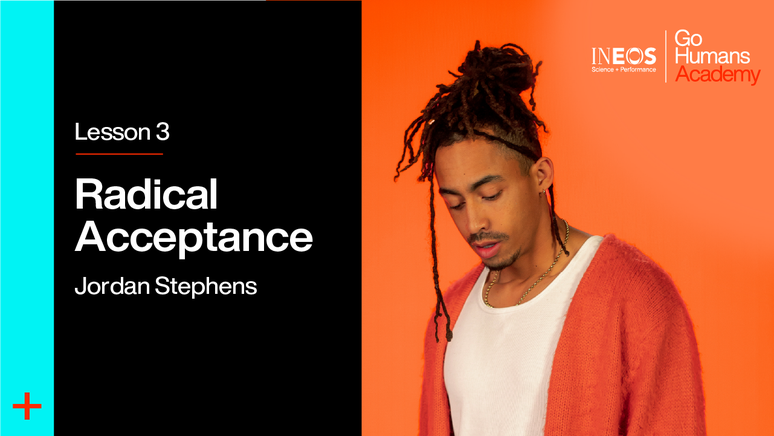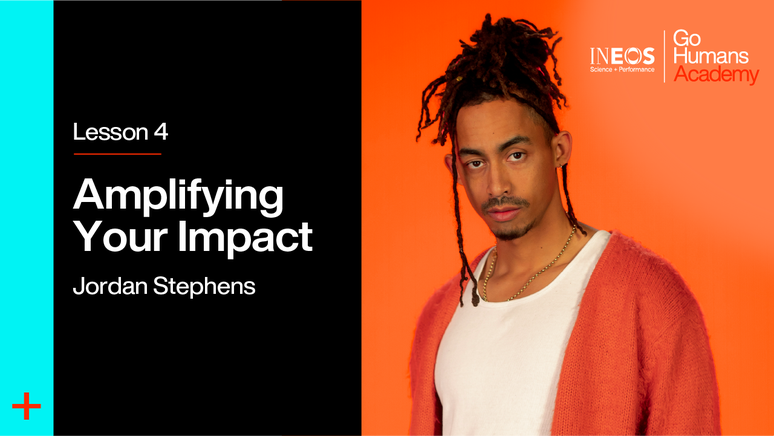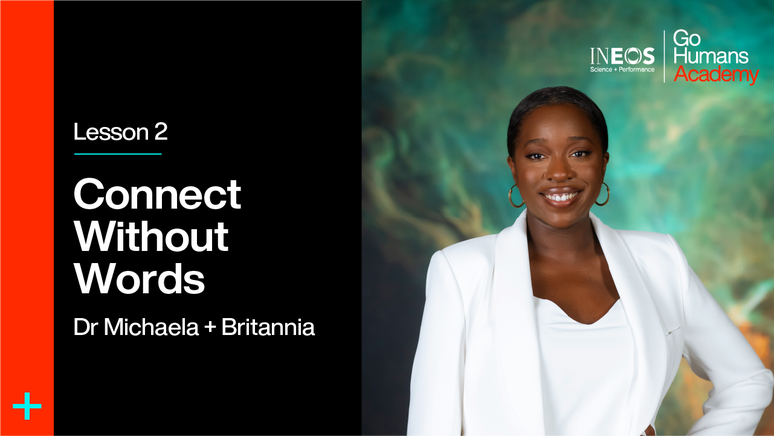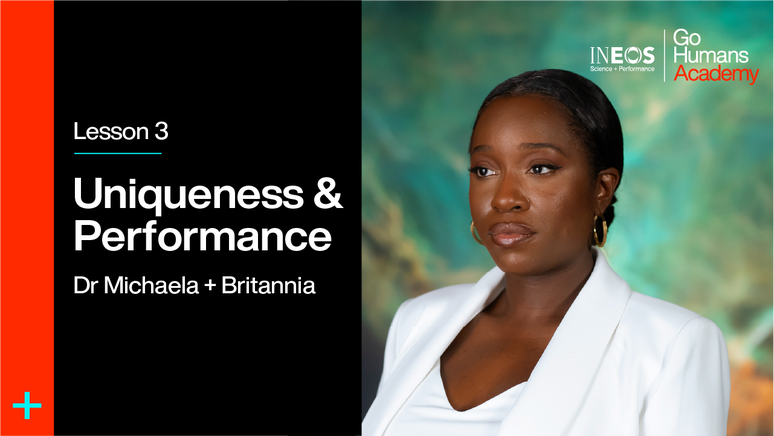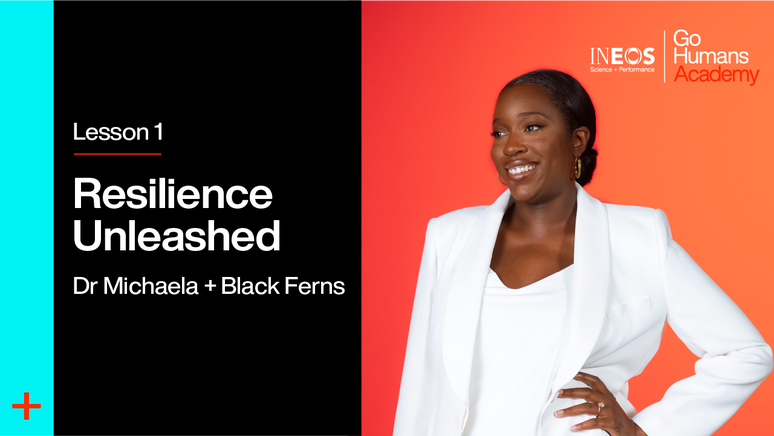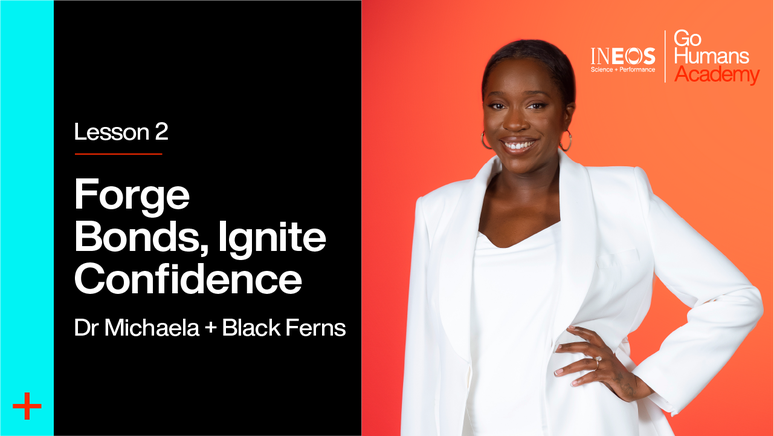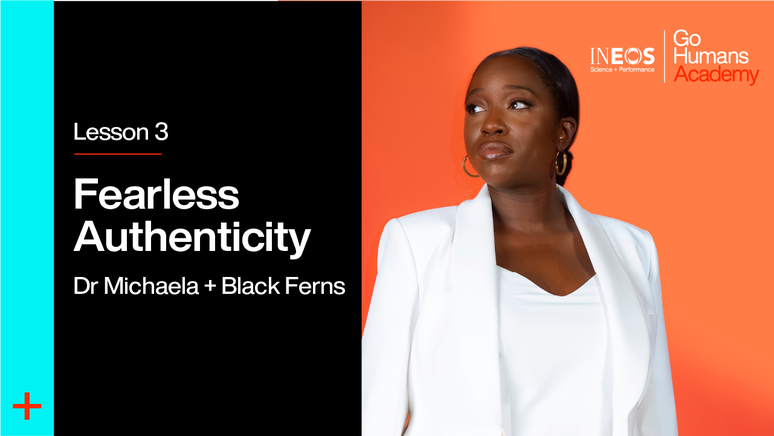Hi everyone, I'm Dr. Michaela, clinical psychologist and founder of My Easy Therapy.
I'm working with the INEOS Go Humans Academy to explore the notion of belonging.
More specifically, we'll delve into how forming meaningful relationships and connections with like-minded people can be a powerful tool for our emotional well-being. Connection, communication and community support are powerful elements that lay the foundation of any successful team.
With the help of the elite INEOS Britannia sailing team, we're going to look at the rewards we can reap from putting our trust in the unknown. Trust is essential to effective teamwork and can be built for experiences that encourage us to rely on the people around us.
Let's start by looking at some exercises where a blindfolded teammate relies on the crew's communication only. Let's see how they get on and I'll provide further insight after they're done.
Exercise
After watching the team complete the exercise, it's important to acknowledge why trust in the people around us is linked to better performance.
Trust is built over time through consistent actions, communications and behaviours that demonstrate reliability and dependability.
When we don't trust our team members or our social circle, it can be difficult for us to feel safe.
Without the feeling of safety, we might not perform our best or get the best results.
It's really important to be able to have that sense of trust in the people around you.
In life, there are countless scenarios where new people enter your life, such as when you're starting a new job, leaving school or entering into a new friendship circle.
As we go through these life milestones, it's important to offer people the chance to demonstrate their trustworthiness, understanding that everyone's going through their own emotional journey.
We are all human and we all have irrational fears and we all make mistakes.
If we find trusting people difficult, it can often be because we're bringing our past experiences with us. Unless you've got real reason to think otherwise, going into situations with an open mind and readiness to trust is crucial.
But also understanding that trust isn't a thought. It's correlated to actions. You might have heard of a threat response. If our brains are in a fight-or-flight mode, this is an automatic physiological reaction to a thought or experience which activates the sympathetic nervous system and triggers a chemical stress response in our body.
As early humans, this may have protected us from life or death threats.
Now, however, this same chemical reaction can make us feel anxious and diminishes our ability to think or perform clearly.
Our threat response can make us hyper-vigilant, so we might be on our guard and more likely to misinterpret someone's actions or intentions.
Trust and belonging create feelings of safety which deactivate our threat response, allowing us to perform at our best.
By relying on their teammates to guide them through the exercises, the INEOS Britannia sailors were able to build trust in each other and deepen their sense of belonging to the team.
The moral of the story? Offer people the opportunity to show that they can be trusted.
And remember, it's always beneficial to let others know that you've got their back and feel assured that they have yours.
So, what can you take away from this session?
- Building trust. Trust is the foundation of strong relationships, friends, family or teammates. To build trust, you need to demonstrate consistent and reliable behaviours. Remember the old saying that actions speak louder than words.
- Historic acknowledgement. Don't let past experiences or betrayals hinder your ability to trust people now. Recognise these experiences but approach each new situation with an open mind, allowing new relationships the opportunity to build their own trust history.
- Deactivate threat. Trust and a sense of belonging can reduce anxiety and clear mental blocks. Participate in activities that build trust within your team or community, as this will help create a sense of safety and enable a better performance.
Most importantly, remember to seek professional help if you need it.
If you're struggling, do not hesitate to reach out to a mental health professional.
They can provide immediate support to help you navigate your feelings and develop a stronger sense of self.
And don't forget to continue our sessions in the link below, or join the conversation using #GoHumansAcademy and head to ineoshygienics.com for more information and mental health resources.
